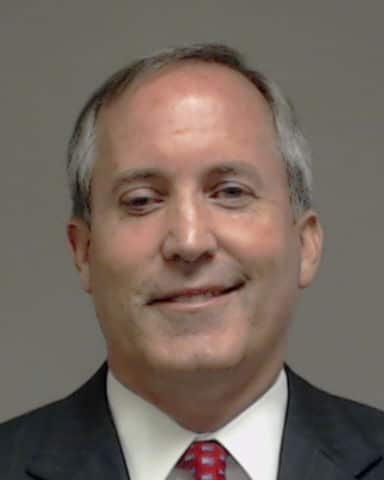By JAKE BLEIBERG Associated Press
DALLAS (AP) — Texas Attorney General Ken Paxton is already facing calls to resign and accusations of crimes by his own staff over an investigation sought by one of his wealthy donors. Now, the Republican’s office is contending with a threat of possible legal action from that donor.
In a letter sent Sunday, a lawyer for Austin real estate developer Nate Paul wrote that Paxton’s staff was always hostile to the probe. The letter does not specifically say Paul will sue, but it is styled as a “litigation hold” demanding the preservation of all related documents. It also questions the legitimacy of the announcement last week closing the investigation.
The letter adds to the confusion surrounding investigations and legal disputes that came to public attention this month when seven top lawyers in Paxton’s office accused him of bribery, abuse of office and other crimes. The unspecified accusations stem from the attorney general hiring an outside lawyer to look into Paul’s claims of wrongdoing by state and federal law enforcement.
Paul’s attorney, Michael Wynne, said he learned from media reports late Friday that the investigation was closed.
“We were never contacted by the OAG regarding this apparently pressured decision, and as such question whether this was in fact an accurate and a legitimate communication from your office,” Wynne said.
Paxton’s office did not respond to a request for comment on the letter. Wynne released it to reporters Sunday night but did not answer when asked if Paul plans to sue.
The attorney general’s office announced the investigation was closed after prosecutors in Austin expressed unease. Paxton, who has spent nearly his entire term in office under indictment for allegations of securities fraud, is also facing mounting pressure over the probe from fellow Republicans. He has denied wrongdoing and cast blame on “rogue employees and their false allegations.”
Paul donated $25,000 to Paxton’s 2018 reelection campaign but the full nature of their relationship is unclear. The specifics of Paul’s allegations are likewise unknown. The FBI, which searched Paul’s home and office last year, declined to comment.
The attorney general’s staff has raised concerns that Paxton used his office to benefit Paul. At least one subpoena issued in the case went to a business in conflict with the developer, but Wynne called the claim “preposterous.”
Wynne said Paul “met with open hostility” when he sat down with Paxton’s staff in July. The director of law enforcement “berated and insulted my client,” the lawyer wrote, driving enmity that eventually led Paxton to hire an outside attorney, Brandon Cammack.
Cammack, who finished law school in 2015, has no prosecutorial experience, but does have ties to Wynne. Paxton has not explained his selection, and Wynne and Cammack have not answered questions about their relationship.
In a court filing made public Monday, prosecutors in the securities case against Paxton questioned his office paying Cammack $300 an hour. In 2015, a onetime donor to Paxton sued over the prosecutors getting the same rate, calling it exorbitant and unfair to taxpayers. The case has been stalled by legal challenges since.
“The first and likely only question the Court should ask of the defendant, given his concession that $300 an hour is reasonable, is why the veteran (attorneys) with their eighty years of collective experience should not be paid the same hourly rate as a comparative rookie,” special prosecutors Brian Wice and Kent Schaffer wrote.
Wynne’s letter came days after a Texas judge sanctioned him in a legal dispute involving Paul, an Austin nonprofit with a financial stake in the developer’s business, and the attorney general’s office.
Travis County Judge Jan Soifer took the unusual step Friday of ordering Wynne to personally pay financial penalties in a case connected to a suit the Roy F. and Joann Cole Mitte Foundation brought against Paul’s companies. The judge found he acted in “bad faith” by suing on behalf of shell companies that are controlled by Paul and were created specifically to intervene in the case.
Wynne called this “blatantly inaccurate,” said the “lawsuit was brought entirely in good faith” and vowed to appeal.
Ray Chester, a lawyer for the Mitte Foundation, said the nonprofit wants to withdraw its money from Paul’s companies but has been frustrated as the developer has cycled through 14 law firms in two years.
“They’ve basically tried every dirty trick in the book,” he said.






